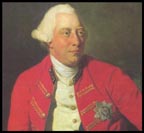


|
The Age of George III |
I am happy that you are using this web site and hope that you found it useful. Unfortunately, the cost of making this material freely available is increasing, so if you have found the site useful and would like to contribute towards its continuation, I would greatly appreciate it. Click the button to go to Paypal and make a donation.
[252] A friend of Junius desires it may be observed (in answer to A Barrister at Law)
1mo. That the fact of Lord Mansfield's having ordered a juryman to be passed by (which poor Zeno never heard of) is now formally admitted. When Mr. Benson's name was called, Lord Mansfield was observed to flush in the face (a signal of guilt not uncommon with him), and cried out, "Pass him by." This I take to be something more than a peremptory challenge: it is an unlawful command, without any reason assigned. That the counsel did not resist, is true; but this might happen either from inadvertence, or a criminal complaisance to Lord Mansfield. You barristers are too apt to be civil to my Lord chief justice, at the expense of your clients.
2do. Junius did never say, that Lord Mansfield had destroyed the liberty of the press. That his Lordship has laboured to destroy, that his doctrine is an attack upon the liberty of the press, that it is an invasion of the right of juries," are the propositions maintained by Junius. His opponents never answer him in point; for they never meet him fairly upon his own ground.
3tio. Lord Mansfield's policy, in endeavouring to screen his unconstitutional doctrines behind an act of the legislature, is easily understood. Let every Englishman stand upon his guard: the right of juries to return a general verdict, in all cases whatsoever, is a part of our constitution. It stands in no need of a bill, either enacting or declaratory, to confirm it.
4to. With regard to the Grosvenor cause, it is pleasant to observe, that the doctrine attributed by Junius to Lord Mansfield is admitted by Zeno, and directly defended. The barrister has not the assurance to deny it flatly; but he evades the charge, and softens the doctrine, by such poor contemptible quibbles as cannot impose upon the meanest understanding.
5to. The quantity of business in the court of king's bench proves nothing but the litigious spirit of the people, arising from the great increase of wealth and commerce. These, however, are now upon the decline, and will soon leave nothing but law-suits behind them. When Junius affirms, that Lord Mansfield has laboured to alter the system of jurisprudence in the court where his Lordship presides, he speaks to those who are able to look a little farther than the vulgar. Besides, that the multitude are easily deceived by the imposing names of equity and substantial justice, it does not follow that a judge, who introduces into his court new modes of proceeding, and new principles of law, intends, in every instance, to decide unjustly. Why should he, where he has no interest? We say, that Lord Mansfield is a bad man, and a worse judge; but we do not say that he is a mere devil. Our adversaries would fain reduce us to the difficulty of proving too much. This artifice, however, shall not avail him. The truth of the matter is plainly this: when Lord Mansfield has succeeded in his scheme of changing a court [254] of common law to a court of equity, he will have it in his power to do injustice whenever he thinks proper. This, though a wicked purpose, is neither absurd nor unattainable.
6to. The last paragraph, relative to Lord Chatham's cause, cannot be answered. It partly refers to facts of too secret a nature to be ascertained, and partly is unintelligible. "Upon one point the cause is decided against Lord Chatham: upon another point it is decided for him." Both the law and the language are well suited to a barrister! If I have any guess at this honest gentleman's meaning, it is, "That whereas the commissioners of the great seal saw the question in a point of view unfavourable to Lord Chatham, and decreed accordingly; Lord Mansfield, out of sheer love and kindness to Lord Chatham, took the pains to place it in a point of view more favourable to the appellant." Credat Judæus Apella. So curious an assertion would stagger the faith of Mr. Sylva.
| Table of Contents | Previous | Next |
| Meet the web creator | These materials may be freely used for
non-commercial purposes in accordance with applicable statutory allowances
and distribution to students. |
Last modified
12 January, 2016
|